During life, we are all bound to face many different issues. Some issues we create ourselves while others aren’t our fault, but perhaps the worst and most challenging problem a person could ever deal with is diagnosed, clinical depression.
This proven illness strikes both young and old, rich and poor, male and female – and there often doesn’t appear to be any rhyme or reason to what triggers the depression in many people. Some people are young (even in their teens) while others are more mature approaching their golden years.
While it is not uncommon for a traumatic event in a person’s life to trigger clinical depression, it sometimes is not the case. Many times depression can surface with seemingly no catalyst at all.
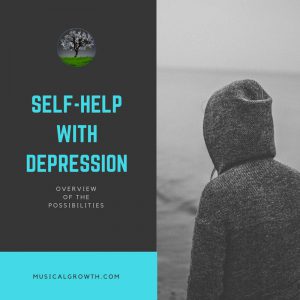
When a person is first diagnosed with clinical depression, they will likely be bombarded with a multitude of treatment options. Some of the most common types of treatment will include professional counselling and prescription anti-depressants. For more severe types of depression, including bipolar depression, prescriptions may be the best solution. But for milder cases of depression, there may be other less invasive methods for treatment.
A strategy for non-invasive treatment includes self help with depression.
This article’s organization:
- What is Self Help with Depression?
- It’s Possible!
- New Science Reports on Self Help with Depression
- Working Out The Brain
- Self Help: How to Treat Depression
- Positive Thinking
- Food/Diet/Herbs
- Exercise/Walking
- Daily Relaxation
- Relationships and Activities
What is Self Help with Depression?
Self-help with depression is a broad term and can include many types of different treatment methods. Rather than referring to one specific treatment, it simply refers to the lack of healthcare professionals being involved in the treatment process.
Different types of self-help programs include:
- Depression self-help groups
- Self-help books
- Natural remedies for depression
- Changes in overall lifestyle
The research aid for this article is actually tied really close to the subject.
Here is her story:
“During my own life, I came to realize not all types of depression are mild. In fact, clinical depression can be life-threatening if left untreated. My grandmother suffered from depression for a large portion of her life. During those years, suffering from any mental illness was a reason for embarrassment. It certainly wasn’t something you would go around talking about, so she chose to keep her illness hidden and attempted to self-treat by herself.
“Now, her self-treatment strategies were very different from those available today and was unfortunately not successful. It was only after her suicide that our family came to realize how much my grandmother had been suffering.
“Looking back, it was such a tragedy because it didn’t seem that she was suffering from severe depression, but rather mild depression that had gone untreated for years.”
It is important for those suffering from any form of depression, no matter how mild it may seem, to seek some help. If you choose a traditional treatment route, you will want to include a healthcare profession.
Even if you choose a self-help program to treat your depression, it is never a bad idea to (at the very least) seek a doctor’s opinion on the best choice.
What you do with that advice is ultimately up to you.
Self Help With Depression – It’s Possible!
Everyone faces obstacles in life. Some of these obstacles may be physical, but some may be mental. The one obstacle that millions of people have in common is clinical depression. To date, there is no known cure for depression, but there are MANY different ways of treating this illness.
One of the treatments for depression (which is gaining popularity) is the self-help method. This means people are choosing to take their treatment into their own hands excluding any outside interference. Some people have experienced positive results this way, while others have not been as fortunate.
If you find no progression in your self-help methods within a few weeks, ask for help from a healthcare professional (better safe than sorry).
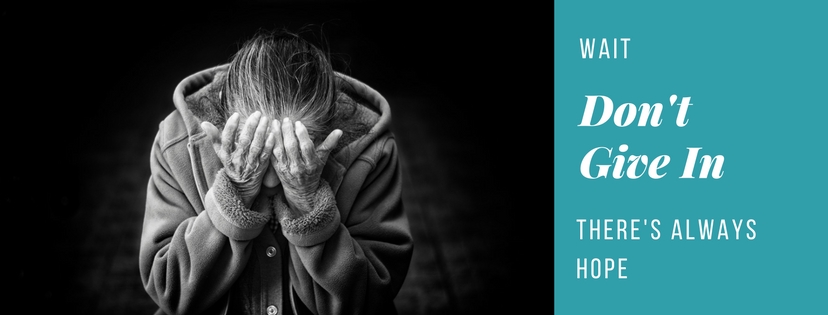
When determining what type of treatment you will seek, it is important to know what types of depression you are suffering from. Just like there are many different types of illnesses, there are many different types of depression (one of the most difficult being the bipolar disorder).
Unlike less severe forms of depression, bipolar depression normally cannot be treated with just one antidepressant. One of the symptoms of this type of depression can be violent mood swings without explanation, which is why many patients suffering from bipolar depression will be prescribed both an antidepressant and a mood stabilizer.
If you are suffering from a less severe form of clinical depression, you may choose like many others, to follow a self-help treatment program. There are many available! Most of them share the same principles and tend to focus on things that are easily within a person’s control such as who they choose to associate with or what they eat.
An easy step in the right direction when treating depression is to actively strive for a positive attitude. Now, being positive is easier said than done for some people, but really (when you think about it) who is in control of your mindset?
If you said anyone other than yourself, you are wrong!
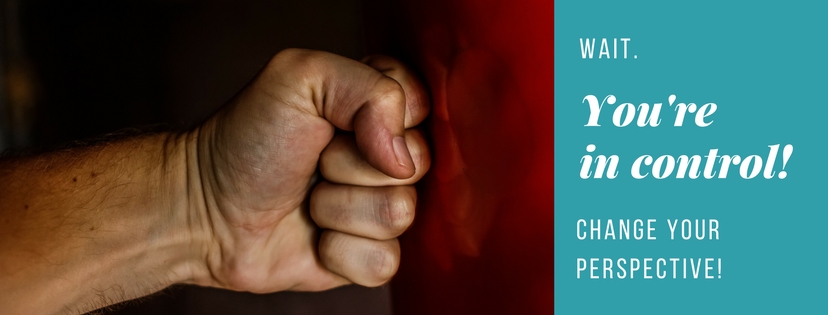
Take procrastinators for example. What is so hard about doing something now that needs to be done eventually? Simply get up and DO IT. It is the same with attitude.
If you look for the negative in life, you will always find it. If you had a million dollars in the bank, the best looking spouse in the world, the smartest kids, etc., you could still find something to be negative about. On the flip side, if you were unemployed, your spouse left you, and your kids were delinquents, you could still find something to be positive for IF you looked.
It is important to evaluate what type of depression you are suffering from and thoroughly research the methods of treatment that you choose. Not every method will work for everyone, but there is help no matter what type of depression you find yourself suffering from.
New Science Reports on Self Help With Depression
Every year, 18.8 million North Americans over the age of 18 are absorbed by self-esteem destroying gloom which cannot be willed away or ignored. Depression can affect all people regardless of age, geographic location, or social position. Luckily, research shows we can do something about it.
“Isn’t depression just part of aging?”
NO. A depressive disorder is not a normal part of aging. Emotional experiences of sadness, grief, response to loss, and temporary “blue” moods are normal. Persistent depression that interferes significantly within a given year is true depression.
Approximately 18.8 million North American adults, which is about 9.5% of the population over 18 years old, have diagnosed depressive disorder. When applied to the 2003 Census residential population estimate, this figure translates to 44.3 million people in the US and Canada.
The risk of depression in the elderly increases with other illnesses and when the ability to function on a daily basis becomes limited. Estimates of major depression in older people living in the community range from less than 1% to about 5%, but rises dramatically and significantly to 13.5% in those who lose their independent lifestyle.
Working Out The Brian
The recent Pew Internet and American Life Project shows that internet use ranges from a high 92% around age 25 and diminishes to about 42% after age 65. Data from the Phoenix Center for Advanced Legal and Economic Public Policy Studies, a non-profit think-tank in Washington, DC, shows that online time reduces depression. Additionally, the Phoenix Centre recommends computer-based brain fitness training for the elderly, since it can slow or even reverse age-related declines in perception and cognition.
Additional research tells us that participants who engage in computerized brain exercises designed to improve visual speed, accuracy and expanse of processing, are 30% less likely to slip into clinical depression after 5 years.
This shows that a small amount of the right kind of brain fitness training can help people experience a happier life even five years later!
The risk of worsening depression symptoms, one of the most common mental health problems experienced by adults, can be significantly reduced by cognitive training aimed at maintaining and improving the speed of information processing.
Study participants engaged in a cognitive speed of processing training were shown to be 30% less likely to experience clinically significant worsening of depressive symptoms over a one and two-year follow up than those not so engaged. Effective brain training creates a wholesome rhythm of brain exercise, challenge, reward, and cell growth that helps combat and reduce the impact of depression. It has also been shown that depression can relate to the inhibition of new neural growth and that antidepressants need new nerve cells to be effective.
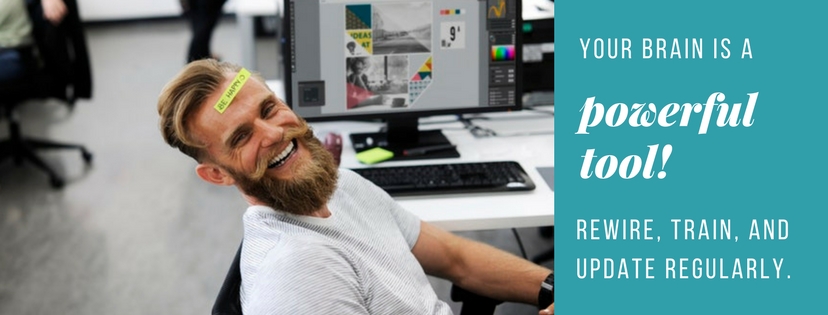
Computer-assisted cognitive training improves the speed of both auditory processing and visual processing as well as aural memory and visual working memory. It gives a sense of well being and confidence from growing success that is remarkable. Sophisticated and effective brain training protocols are available to be done on your home computer (such as Luminosity). They are graduated step by step training, for the most part, nurturing our innate brain plasticity. Gains and growth come by stretching the limits of our cognitive ability which produces neurogenesis and changes in our dopamine receptor density.
This means that we are not stuck with the brain we were born with!
The degree of gain has been shown to be dose dependent, or, the more your train, the more you gain. Compare your brain to a computer. The brain can be updated, rewired, and improved upon just be the exposure and intensity of the training. Pretty amazing if you think about it.
How to Self-Help With Depression
Depression is the most unpleasant experience. To be depressed means to be emotionally imbalanced. Besides feeling sad and unhappy, you may also feel other symptoms, such as you may have oppressive thoughts or feelings of constant guilt.
Some of depressions symptoms:
- Feeling inadequate
- Having loss of interest
- Having lack of energy
- Sleep disturbance (insomnia)
- Anxiety
- Lack of sexual drive
There are many reasons to be imbalanced and depressed. For example, increase stress, loss of a loved one, job loss, irregular diet habits such as excessive amounts of carbohydrates or sugar, or the excessive consumption of drugs and alcohol, just a few to name. To treat depression, some people require medical attention and usage of anti-depression drugs, while others use proven self-help techniques which can work like magic!
Here are 9 other natural strategies for how to self-help with depression:
- Positive Thinking
- Food
- Walk
- Herbs
- Get Physically Active
- Practice Daily Relaxation or Meditation
- Add More Cold-Water Fish to Your Diet
- Maintain Social Relationships and Activities
- Stay Away from Substances that Produce Depressant Effects

1. Positive Thinking
Thinking positively can instantly bring changes to your life and lift you up from a depressed mood. You’ll find yourself in a chirpy, lively mood if you change your perspective on life!
Tips: be thankful for all you have achieved so far in life. Be thankful for all the people you’ve met. If that is difficult, positively foresee your future – see yourself one year from now as the person you always wanted to be. This “person” is attainable, you just have to think success. Train your brain to find the success in your actions and soon enough your actions will follow. Goals are important if they point toward the person you want to become!
2. Food
To recover from depression, renew your menu. Wrong foods can affect your body in a negative way including your hormone balance, metabolism, and can have a profound effect on your mental health. A diet that is effective include B vitamins (a substance often lacking in depressed people).
Tips: food rich in B vitamins are green vegetables, whole grains, eggs, and fish. Also, eating bananas when depressed is highly advised as well. Banana proteins, when eaten, are converted into serotonin, which is known to improve mood. Avoid all processed foods and enjoy the more rejuvenating, fresh foods. Provide the nutrients your body needs.
3. Walk
Poor air quality or poor breathing habits can cause you to get depressed. Heavy exercise is not needed, but a brisk walk is recommended on a daily basis (that’s why my wife and I have dogs now! They force us outside to walk them!). Make yourself go out; you will thank yourself later. When walking, you are not only keeping your body fit, but you also improve your mental health. Walking changes your hormone levels in the blood and may affect your mood and brain chemical balance.
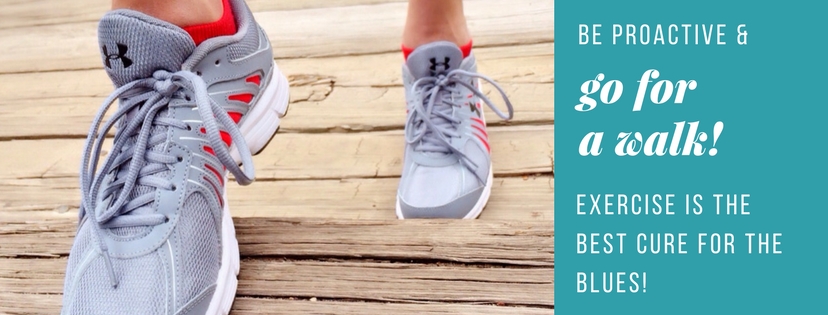
4. Herbs
There are amazing natural organic health herbs which can help you in the process of treating depression. The right selection of clinically proven herbs can greatly enhance mental clarity, lift depression, and reduce levels of stress hormones such as cortisol and adrenaline.
Tips: try herbs like rhodiola rosea, ginkgo, St. John’s wort or Kava-Kava. I would like to invite you to read my article about natural remedies that fight depression.
5. Get Physically Active
Regular physical activity is known to work as a natural antidepressant. Compared to a month’s supply of Lexapro (which costs a little over $100), exercise is free and a lot more fun!
Tips: you can run, dance, bike, or swim your way to improve mental health. The endorphins released in your brain during physical activity increases your levels of serotonin, a neurotransmitter responsible for lifting the mood. Serotonin can also distract you from negative thoughts and shield you from stress, in turn, building your self-esteem.
6. Practice Daily Relaxation
At least once a day, try to set some time aside to relax. You can begin with simple deep breathing exercises. If you there’s good results, then consider transitioning to daily meditation. If you want a more physically motivated relaxation, regular yoga practice is a great way to balance mind and body.
7. Add More Cold-Water Fish to Your Diet
Studies by the National Institutes for Health show that the Omega-3 fatty acids present in oil-rich, cold-water fish (such as salmon, sardines, mackerel and herring) are also a natural stimulant of serotonin production. As such, researchers believe eating more Omega 3-rich fish provides natural help for depression as well as other psychological illnesses.
Of course, many people worry about mercury and other toxins showing up in many of these fish sources. If you’re not comfortable with eating fish, for this reason, you can always get a healthy dose of omega-3 with a couple tablespoons of ground flaxseed added to your salad, soup or bowl of cereal every day.
8. Maintain Social Relationships and Activities
It is well-known that depression can increase feelings of loneliness and isolation. This is why it is so important to spend time with family and friends. Increasing feelings of being connected to the world can come from simple things such as interacting with a pet, volunteering in your community and spending time in nature.
9. Stay Away from Substances that Produce Depressant Effects
You May think have a cocktail or two makes you feel better, but in truth, it can have a depressant effect. Drugs such as antihistamines and sedatives also have negative effects on depression.
Caffeine is also a known culprit for interfering with mood and making symptoms of depression worse. And if one of your symptoms is insomnia, caffeine can make it much worse.
Because of its mood=altering effects, nicotine also falls into this depressant substances category. The risk of depression in smokers is significantly higher than that of people who don’t smoke.
Conclusion
Self-help strategies are proven to help most people suffering from mild depression. Little actions in the right direction can help tremendously such as guarding yourself against negative thoughts, walking or exercising to purify the brain, preparing food yourself (such as herbs, fish, or proteins), and even trying essential oils or other natural remedies.
I hope this article helps.
If you’re in need of additional resources, please consider reading these articles:
- Help With Depression – Finding Your Purpose
- Natural Remedies to Fight Depression
- Himalayan Pink Salt Lamp – Scientifically Improve Your Mood
- Stress Relief Tea
- Pink Salt Baths – Better Than Epsom
You are always welcome to reach out to family members or friends. It may not seem like it, but anyone you know is always willing to help someone suffering from depression.
Don’t be shy. Be proactive. You are in control, just take the first step toward a better life. Toward a better you!
Thank you for reading and best of luck. Please comment below to share your thoughts, worries, concerns and I promise to read each and every one of them. We are a small community, but we care.
Consider signing up for our newsletter!
Thanks again,
Written by Chase & QueenetWriter
March 2018

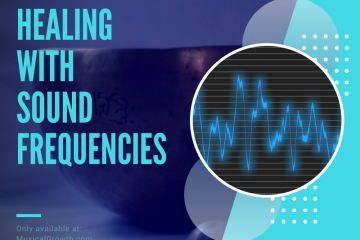


0 Comments